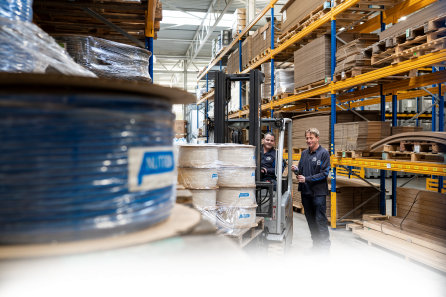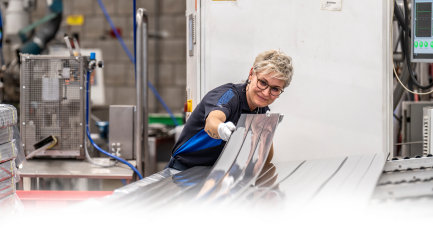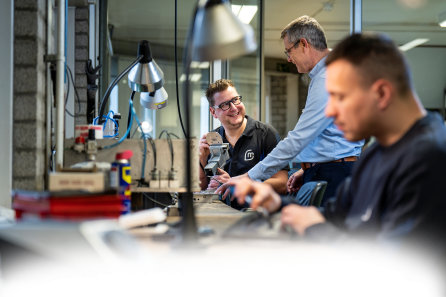
Why does Meldon use APQP?
Advanced product quality planning (APQP) is a method to document how a suitable part is produced with a reliable and repeatable process through an understanding of requirements and a thorough risk assessment. This method is meant to cover all (automotive) OEM requirements for planning activities into one process. Meldon develops products according to the principles of APQP to ensure the quality of the new products and to drive continual improvement.
The origins of APQP
During the late 1980s, APQP was developed in the automotive industry. Major players in that industry started using this method. Since then, APQP has gained momentum and the interest of manufacturers in many industries. Nowadays, it is relevant to the successful planning, production, and release of just about any product.
The purpose of APQP
APQP benefits the OEM (customer) and supply chain (contractor) by having a structured agreement and method for product definitions and requirements. It provides a platform to have efficient and effective decisions and communication. This avoids any interpretation and confusion that may delay production, create a sub-standard part, and/or increase costs.
The purpose of APQP is to get a clear understanding of customer wants, needs, and expectations regarding the product, and to develop necessary plans to ensure customer product expectations are met in every way. So, listening to the customer’s needs is what APQP is all about.
The benefits of APQP
APQP supports the never-ending pursuit of continual improvement. The first three sections of APQP focus on planning and prevention, and make up 80% of the APQP process. The fourth and fifth sections support the remaining 20% of APQP, and focus on validation and evidence. The fifth section specifically allows an organization to communicate its findings and provide feedback to further develop the standard and processes. APQP offers many benefits:
- APQP is more than setting quality management standards. It involves defined, pre-established steps addressing quality and design & process issues, helping save the company’s time and resources. It also aims to enhance communication between customers and suppliers for the ultimate satisfaction of the customer by the end product.
- Strategic Planning with APQP, detecting and solving problems at an early stage helps to avoid back-and-forth issues. This leads to faster product development and delivery and the minimization of costs.
- APQP ensures that problems are detected and resolved earlier and quickly, ensuring it addresses them before becoming irreversible and unmanageable.
- APQP focuses on mitigating risks early enough to avoid failure. During the product development process, the team working on the product takes action on the risk before it goes to the testing phase, which could make it costlier. This also prevents any product failure or issue from reaching the customer resulting in poor customer satisfaction and feedback.
- APQP goes beyond product development or modification, ensuring the change/risk is managed accordingly. This prevents any problems which could be created by the change taking place.
- Finally, APQP is a process of continuous improvement that doesn’t end once the company begins to produce and distribute a product. Feedback is received, and corrective action is taken.
Great methodology for improving design and development processes
Besides the requirements of IATF 16949, all these benefits make APQP appealing to organizations that are not part of the automotive industry, but do want to improve their design and development process.




